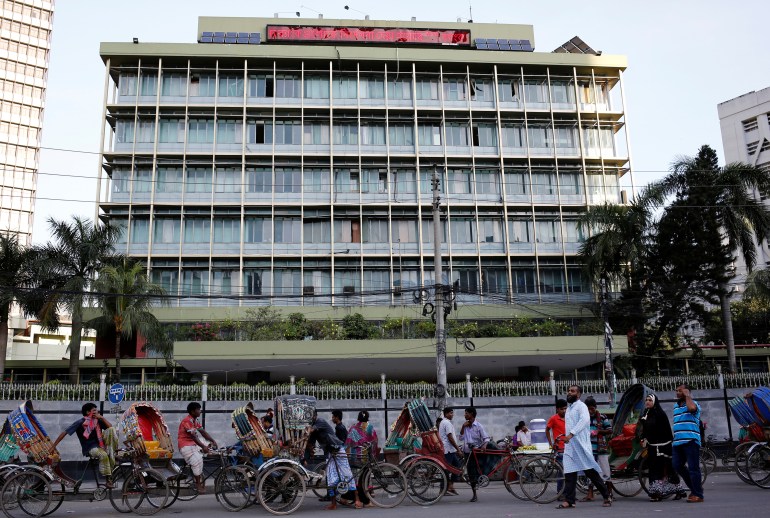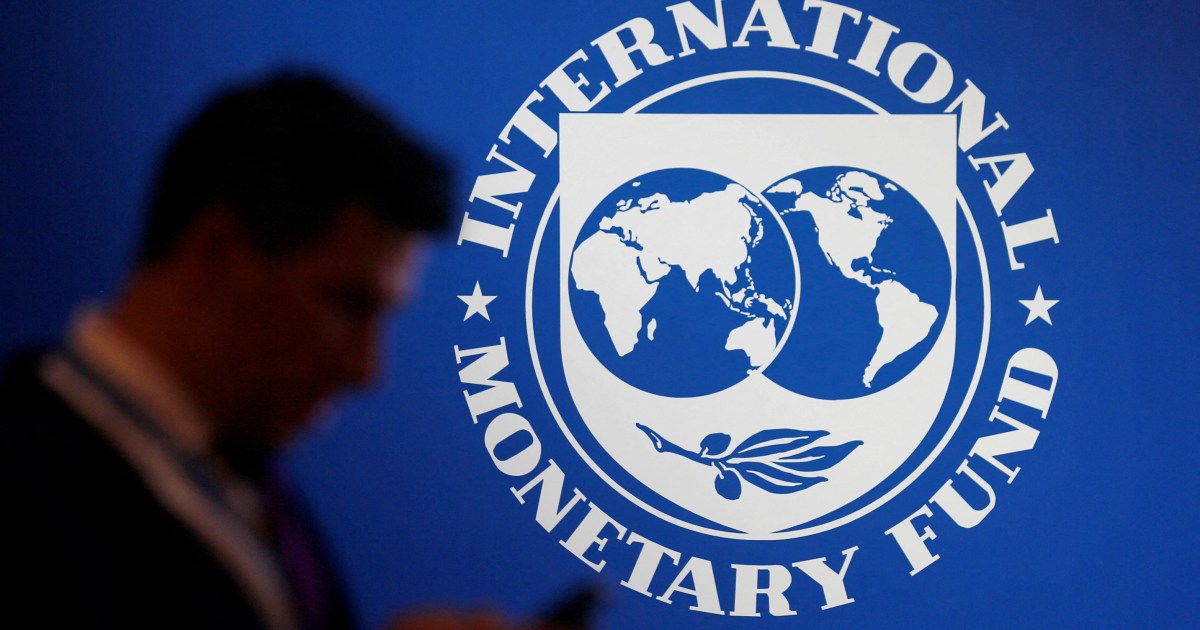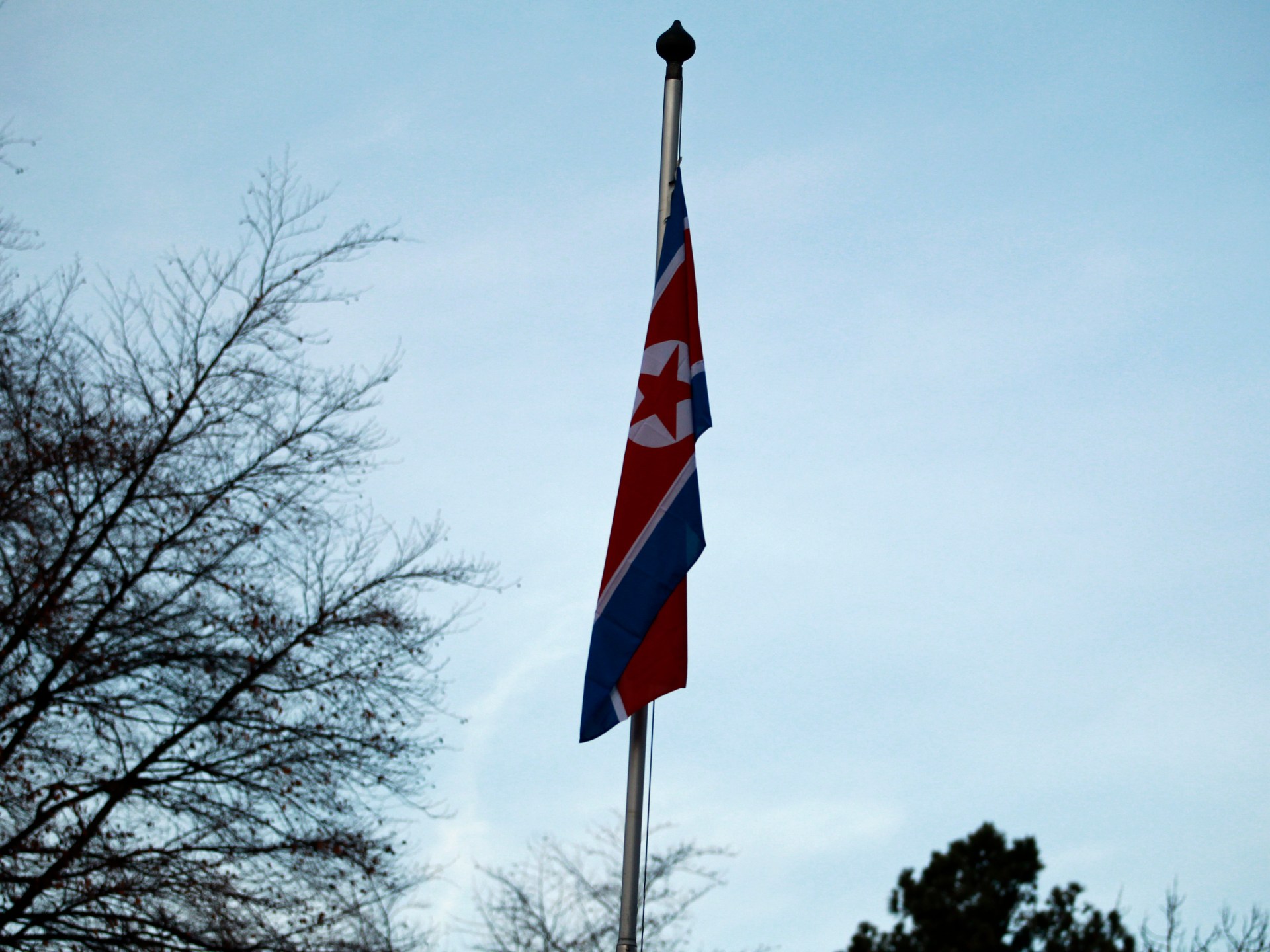Bangladesh seeks $4.5bn IMF loan as forex reserves shrink: Report | International Monetary Fund News
Bangladesh has sought a $4.5bn loan from the International Monetary Fund, the country’s leading newspaper reports, joining South Asian neighbours Pakistan and Sri Lanka in seeking help to cope with mounting pressure on their economies.
Known for its big garment-exporting industry, Bangladesh has sought the funds for its balance of payment and budgetary needs, as well as for efforts to deal with climate change, the Daily Star reported on Tuesday, citing documents it had seen.
It said Finance Minister A H M Mustafa Kamal wrote to IMF Managing Director Kristalina Georgieva on Sunday.
Officials at the finance ministry and the office of the IMF in Bangladesh did not immediately respond to requests for comment.
The Bangladesh Bank recently announced a policy to preserve dollars by discouraging imports of luxury goods, fruits, non-cereal foods, and canned and processed foods.
The bank’s foreign exchange reserves fell to $39.67bn as of July 20 – sufficient for imports for more than five months – from $45.5 bn a year earlier.

Bangladesh’s July to May current account deficit was $17.2bn, compared with a deficit of $2.78bn in the year-earlier period, according to central bank data.
In the first 11 months of the fiscal year that ended on June 30, imports jumped 39 percent but exports grew only 34 percent.
Remittances from overseas Bangladeshis fell 5 percent in June to $1.84bn, the central bank said, as many migrant workers lost their jobs because of the COVID-19 pandemic and many of them could not get home because of the travel disruption it caused.
Economists say the Bangladeshi taka has effectively slid against the US dollar by approximately 20 percent in the past three months. The depreciation of the local currency has further weakened the nation’s finances, with the current account deficit hitting $17bn.
Authorities were grappling with a “crisis” because of rising international fuel prices after the Russian attack on Ukraine, said junior planning minister Shamsul Alam.
“Our balance of payments is in the negative zone. We need to stabilise our exchange rate,” he said.
‘Austerity measures’
Alam said the government had rolled out “austerity measures” in addition to electricity rationing, including import curbs and cuts to development spending.
Diesel power plants across the country, accounting for 1,500 megawatts of generation capacity, have been taken off the grid, while some gas-fired plants are also idle.
The country has experienced lengthy blackouts in recent weeks, sometimes for up to 13 hours a day, as utilities struggle to source enough diesel and gas to meet demand.
Tens of thousands of mosques around the country have been asked to curtail their use of air conditioners to ease pressure on the electricity grid, with power shortfalls compounded by a depreciating currency and dwindling foreign exchange reserves.
Bangladesh’s precarious financial position has been compounded by unprecedented floods in the northeast, inundating the homes of more than seven million people and causing nearly $10bn in damage, according to government estimates.
The opposition Bangladesh Nationalist Party has blamed the government for the crisis, accusing it of squandering cash on multibillion-dollar vanity projects.
Elsewhere in South Asia, Sri Lanka, facing its worst economic crisis in seven decades, is currently in negotiations for an IMF bailout.
The island nation ran out of foreign currency to import even its most vital essentials, triggering long queues at petrol stations, food shortages and lengthy power cuts.
Pakistan’s foreign exchange reserves are depleting rapidly. Earlier this month, it reached an agreement with the IMF that would pave the way for the release of an additional $1.2bn in loans and unlock more funding.





Pingback: togelonline88
Pingback: https://www.postandcourier.com/sponsored/phenq-reviews-does-this-diet-pill-actually-work/article_1cdbfb1a-395f-11ee-9d97-33c51303c959.html
Pingback: https://www.geht-auch-anders.de/wp-content/uploads/2018/05/page-3.html